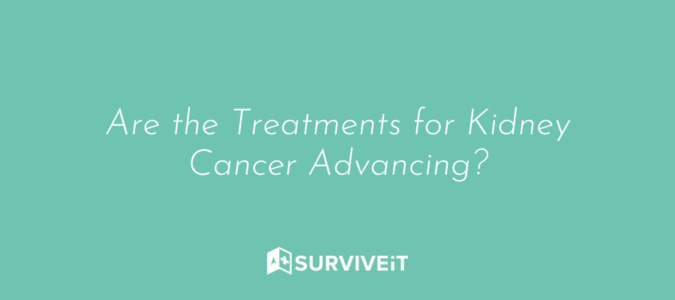Are the Treatments for Kidney Cancer Advancing?

The American Cancer Society reported that approximately 73,750 new people will be diagnosed with kidney cancer in 2020 (this number accounts for all types of kidney and renal pelvis cancers). With many people being impacted by a kidney cancer diagnosis (patients, family and friends), and many questions arising, we want to share more information about how kidney cancer is diagnosed.
The following is an overview of the types of tests and scans used during a kidney cancer diagnosis
OHC offers new approaches for treating kidney cancer.
Source: ohcare.com
From Kurt P. Leuenberger, MD, medical oncologist and hematologist at OHC
March 5, 2019
The most difficult part of my work is to tell a patient they have cancer. It’s especially difficult because at OHC, our patients are like family members. When we do have to tell someone they have kidney cancer, we are fortunate in that we are able to offer them several treatment options, including the newest approaches plus the most promising treatments being tested in clinical trials.
The most common forms of treatment include surgery, radiation, chemotherapy, and ablation. There are also newer approaches, such as personalized medicine and immunotherapy, as well as new drugs being tested now in clinical trials, and these are also available at OHC.
Personalized Medicine
Everyone’s cancer is different. That’s why treatment for kidney cancer should involve an individualized approach, one that takes into account more than just the stage of the cancer. This is known as personalized or precision medicine and, although it’s relatively new for some providers, OHC doctors have used this approach for years.
We know that a standard approach for everyone doesn’t work. So, we use a personalized approach in that we evaluate each patient’s medical history, and the size, stage, and genetic makeup of the cancer. We use that information to develop a treatment plan that is specific for each person’s cancer. This approach aims to target the cancer and protect normal, healthy cells.
We’re currently evaluating a new targeted treatment for kidney cancer in one of our clinical trials. We’re evaluating the drug Lenvatinib in combination with Everolimus or Pembrolizumab versus Sunitinib alone. Even though the FDA has approved the use of these drugs, the clinical trial at OHC is evaluating the three options to determine which is the most effective for treating advanced kidney cancer. (Learn more about this trial here.)
Immunotherapy
Immunotherapy is a type of treatment that uses the body’s own immune system to fight cancer. It mainly consists of stimulating the immune system to help it do its job more effectively. It can also involve adding things to your immune system, such as man-made proteins. You may have recently heard about a form of immunotherapy, called CAR-T, in the news. OHC is the first in Greater Cincinnati to bring this exciting new treatment to adults with certain blood cancers.
For kidney cancer, we’ve been using immunotherapy drugs such as Opdivo and Yervoy in certain patients whose kidney cancer has spread. We’re currently participating in a clinical trial that is evaluating Keytruda, which has been approved by the Food and Drug Administration for treating several cancers, for its effectiveness in treating advanced kidney cancer. (Learn more about this trial here.)
Improved Outlook
The American Cancer Society reported that the five-year relative survival rates for kidney cancer is 93% for patients with localized kidney cancer (no sign that the cancer has spread outside of the kidney) and 75% for all stages combined. People now being diagnosed with kidney cancer may have a better outlook than these numbers show. That’s because these findings are based on people diagnosed with cancers of the kidney between 2008 and 2014. Also, treatments are improving over time, and these numbers don’t take everything into account. Survival rates are grouped based on how far the cancer has spread, but your age, overall health, how well the cancer responds to treatment, and other factors will also affect your outlook. And that can be better than the average!
Kidney Cancer Resources
After a kidney cancer diagnosis, patients and loved ones often feel overwhelmed. To help you gather information and provide you with actionable next steps, we’d developed a Kidney Cancer Resource Library. In it, you will find our Start Here Guide, question to ask your oncologist during your next visit and more. Get kidney cancer resources today.
